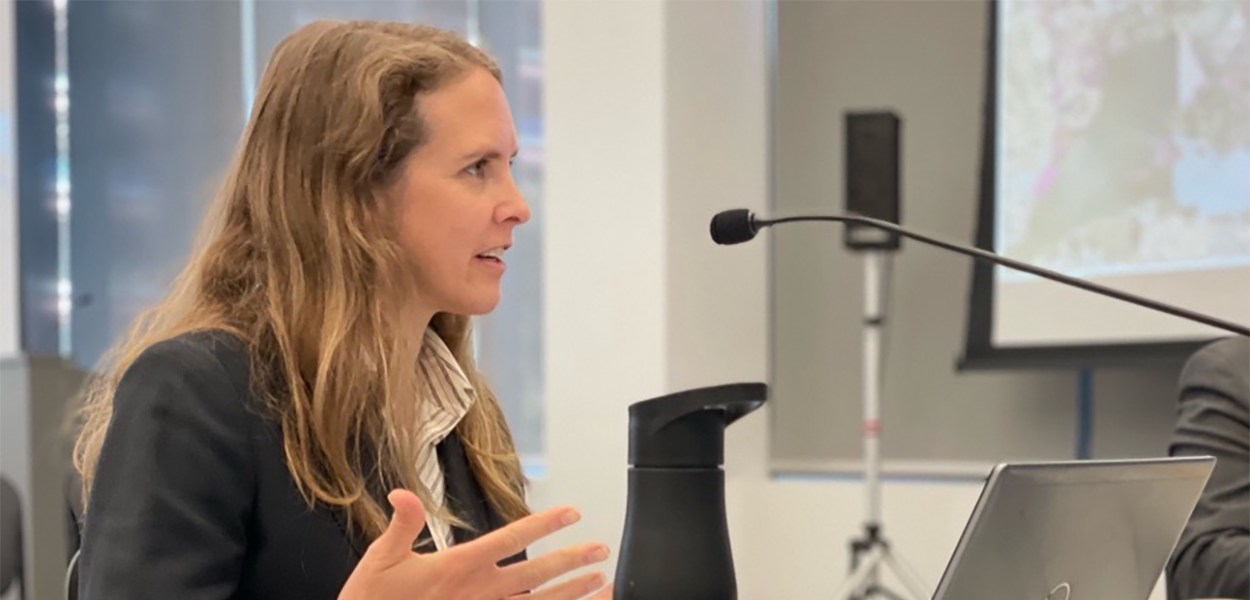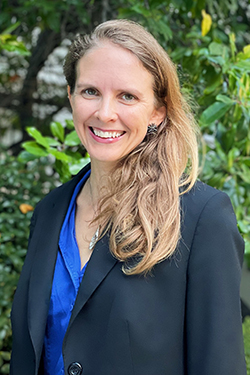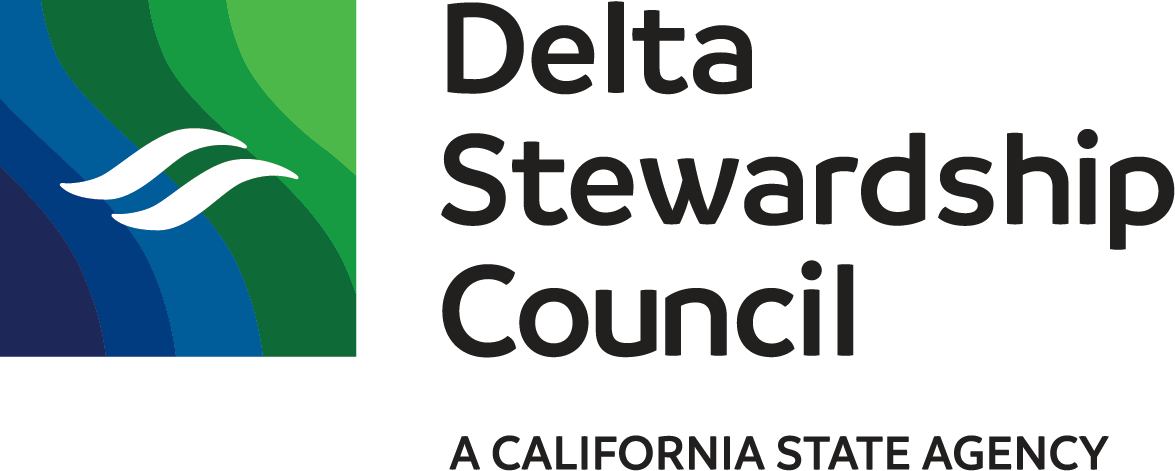
Looking Back and Moving Forward:
A Reflection by Outgoing Delta Lead Scientist Dr. Laurel Larsen
December 11, 2023
By Dr. Laurel Larsen
At major transition points in my life or career, I have found it useful to look backward and take stock of my initial expectations, whether they were met, and what I learned from the experience. In preparing to write these reflections, I cracked open the presentation outlining my original vision for the Delta Lead Scientist role, given back in March 2020, just weeks after the pandemic was declared.
Not only had I become the new Delta Lead Scientist during a global pandemic, I was making a big mid-career move and becoming the first female to hold the position. I had lofty ambitions but also more reservations about my likelihood of success. The position hadn’t been on my radar when it was first advertised in 2019, but a former student at UC Berkeley (now an Environmental Program Manager at the Council) reached out and encouraged me to apply. He cited a conversation we’d had where I expressed a desire to “give back” at some point in my career and work at the science-policy interface. Indeed, I wanted to learn more about that interface, particularly surrounding a topic as fascinating as California water, which, for me, is as riveting as any good novel. I also wanted to immerse myself in all things Delta. That part of California has captured my interest since I moved to the state in 2012. I used my terrestrial hydrology and water resources and environment courses as excuses to deepen my knowledge, but I wasn’t quite sure how to break into the research scene.
That background also set the stage for an important element of my vision as Delta Lead Scientist – better connecting the academic and agency/policy communities. As a professor, I see our state's tremendous brain trust and the passion that the next generation has for using their skills for social good. Often, they just need somebody to help them make the connection. Along similar lines, I also wanted to continue to serve as a champion for open, reproducible science, as I had at Berkeley, and incentivize synthesis and the widespread use of datasets. I feel good about what the Delta Science Program has accomplished in these areas, from the Delta Lead Scientist Ask-Me-Anything series to the National Center for Ecological Analysis and Synthesis working groups that the Delta Science Program has sponsored, to a new data science internship program, to the open-science platforms and resources we funded (see examples on this R Shiny application and the Delta Science Tracker), to greater coordination around open science with other agencies and the California Water Data Consortium.
I also feel good about other elements of my initial vision, including working to develop scenario-based modeling approaches to evaluate outcomes of alternative management strategies under different climate futures, establishing/strengthening model working groups and seeking funding for model integration, and identifying adaptive management opportunities. Scenario-based modeling to facilitate a collaborative adaptive management approach to salinity management during drought has been at the heart of the Delta Science Program’s Salinity Management Workshop Series. Additionally, building on the Integrated Modeling Framework Workshop earlier this year, an Integrated Modeling strategy document will soon be released. If successfully implemented, I believe the modeling strategy can lead to transformative change in the transparency, accessibility, and understandability of the state’s major water and ecosystem models and how they are used in decision-making.
For these and other aspects of my vision that met some success, including ensuring the continuation and expansion of our funding program and integrating social science into all aspects of Delta science, one divergence from expectations was how those successes came about. I initially imagined that I would be starting new programs and projects and in the front of many of these initiatives, but I quickly came to learn that successful initiatives are such because they build on longstanding efforts and champions within or external to the agency; my main role was to help in the communication and coordination of those efforts, uphold their prioritization, and sometimes serve as a sounding board for ideas. That’s right – any success I had as a leader is because there were so many great, impassioned, and savvy leaders who made my job easy and pulled me along. Great leaders make great leaders.
And, on that note, I realized that many of my most salient learnings came not from the success or failure of different aspects of my vision but from the people who surrounded me. I previously implied that I was filled with self-doubt when I started this position. Before starting, I joked with an old friend whose father, a former state employee in Colorado, was fond of saying that people rise to the level of their incompetence, that this may be that level for me. My imposter syndrome only intensified when the pandemic forced me to present at public meetings with my then-two-year-old having a screaming tantrum next to my chair. (I wrote about that experience here for a pandemic motherhood writing contest.) But you know what? After that meeting, Council Chair Virginia Madueño made a point of telling me how well and calmly she thought I handled that situation, which completely reframed the moment for me in a way that built confidence. It made me realize how important it is that we all support each other with kindness and understanding and want to consciously pay it forward. Greg Gearheart at the Office of Information Management at the State Water Resources Control Board reinforced that message when he talked about “kind science” on an open-science panel at the Integrated Modeling Framework workshop. And subsequent positive affirmations from colleagues made such a huge difference at other times when imposter syndrome loomed large.
I truly believe that it is only when we embrace the humanity of the Delta – when we try to see situations from multiple perspectives, to reach all the people for whom the Delta is part of their story, with kindness and good intentions at heart, and truly listen – that we will make real progress in addressing its most challenging problems. I believe my biggest shortcomings in this position are not getting out enough, not reaching enough people, not hearing enough of their stories, and not telling our stories to enough people in effective and transparent ways. But this is also where I have the most hope for the future because I see so many positive intentions in state government and a true sea change in efforts to be inclusive. I believe we are poised at the threshold of a Just Transition in resource management, and I look forward to seeing the next steps as I pass on the reins to another amazing Woman in Water.
About the Author

Dr. Laurel Larsen
In addition to her work with the Council, Dr. Laurel Larsen, an interdisciplinary ecohydrologist, is an associate professor in geography and civil and environmental engineering at the University of California, Berkeley. She holds a Doctorate in civil engineering (water resources) from the University of Colorado, Boulder, and both a Master of Science in earth and planetary sciences and a Bachelor of Science in systems science and mathematics and environmental studies from Washington University in St. Louis. Prior to starting her role at Berkeley in 2013, she was a research hydrologist and ecologist at the United States Geological Survey in Reston, Virginia.

